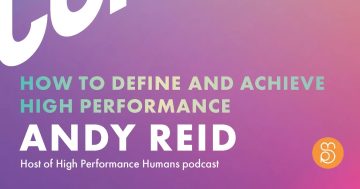
Instead of expecting that people will like you, focus on earning their trust and respect. Picture: BPGS.
Travis Bradberry says our expectations shape our reality, but when they become divorced from that reality we are heading for trouble.
Your expectations, more than anything else in life, determine your reality. When it comes to achieving your goals, if you don’t believe you’ll succeed, you won’t.
Louisiana State University research has found that people who believe in themselves use more metacognitive functions than those who don’t.
This means they use more of their brains and have more brainpower to solve problems. Metacognition is especially important for achievement as it ensures that you approach problems from many different angles and adapt your approach as needed.
The tricky thing about your expectations is that they impact other people, too. As far back as the 1960s, Harvard University research demonstrated the power of our beliefs in swaying other people’s behaviour.
When teachers in the studies were told that certain (randomly selected) children were smart, those kids performed better, not only in the classroom but also on standardised IQ tests.
Your own expectations shape your reality. They can change your life, emotionally and physically. You need to be extra careful about (and aware of) the expectations you harbour as the wrong ones make life unnecessarily difficult. Be especially wary of the following expectations – they give people all kinds of trouble.
Life should be fair: We’ve heard a million times that life isn’t fair, but despite what we know about the intricacies of injustice, it’s a concept that doesn’t quite sink in in practice.
A surprising number of us subconsciously expect life to be fair, and we believe any unfairness we experience will somehow be balanced out, even if we don’t do anything about it.
If you’re stuck in that mindset, it’s time to get over it. When something ‘’unfair’’ happens, don’t rely on outside forces to get you back on your feet. Sometimes there isn’t any consolation prize, and the sooner you stop expecting one, the sooner you can take actions that will actually make a difference.
Opportunities will fall into my lap: Just because you deserve a raise, a promotion, or a company car doesn’t mean it’s going to happen.
You have to put in the hard work, then go and get what’s yours. If we limit ourselves to what’s given to us, we are at the mercy of other people.
Everyone should like me: People have hang-ups, and that means all sorts of decent, kind, respectable people are not liked by (some) others, for no good reason at all.
When you think that everyone should like you, you end up with hurt feelings. When you assume that people are going to like you, you take shortcuts; you start making requests and demands before you’ve laid the groundwork to really understand what the other person is thinking and feeling.
Instead of expecting that people will like you, focus on earning their trust and respect.
People should agree with me: Sure, you know what you’re talking about, and for that reason, people should take you seriously.
However, expecting people to agree with you out of courtesy, or because your ideas are so incredibly sound, is another story. Something that’s obvious to you might not be so to someone with different experiences and a different agenda, so stop being offended when people disagree
with you.
Instead, focus on how you can find solutions that give everyone what they need.
People know what I’m trying to say: People can’t read your mind, and what you’re trying to say is rarely what other people hear.
You can’t expect people to understand you just because you’re talking – you have to be clear. Whether you’re asking someone to do something without providing the context or explaining a complex concept behind a big project, it’s easy to leave out relevant information because you don’t think it’s necessary.
I’m going to fail: As I’ve touched upon already, if you expect to fail, you stand a higher chance of creating the very outcome you’re worried about.
If you fail, accept that sometimes you’ll fail and sometimes you’ll succeed, but if you pursue an endeavour, believe with all your being that you’re going to succeed in that endeavour. Otherwise, you’ll limit the chances of that happening.
Things will make me happy: Sure, things can make life more fun and comfortable in the short run, but they can’t make you happy in the long run.
Too many of us expect a future event (“I’ll be happy when I get that promotion”) to make us happy, instead of looking more deeply into the real causes of our unhappiness.
If you don’t fix what’s going on inside, no external event or item is going to make you happy, no matter how much you want it to.
I can change them: There’s only one person in this world you can truly change – yourself – and even that takes a tremendous amount of effort.
Still, it’s tempting to try to change someone who doesn’t want to change, as if your sheer will and desire for them to improve will change them (as it has you).
Let go of this faulty expectation. Build your life around genuine, positive people, and avoid problematic people who bring you down.
Travis Bradberry is the award-winning co-author of the bestselling book Emotional Intelligence 2.0, and the co-founder of TalentSmart. His books have been translated into 25 languages and are available in more than 150 countries. He can be contacted at TalentSmart.com. This article first appeared on the TalentSmart website.











